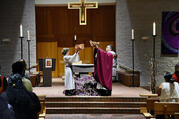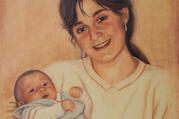Loading...
Click here if you don’t see subscription options
Click here if you don’t see subscription options

FaithFaith in Focus
My parents instilled in me the lesson that no matter what life threw at me, God would always be there to guide me.

FaithFaith in Focus
My vocation is about a far deeper encounter than a TV show about food can offer, and years later I discovered one of the most profound manifestations of this among children before the Bread of Life himself.

FaithFaith in Focus
Better sexual education can help uphold the dignity of women’s embodied existence and diminish damaging stigmas.

FaithFaith and Reason
While at the surface the question about women’s ordination has been asked and answered, rarely has it been asked in this new context where women’s full human dignity is unreservedly affirmed and defended.

FaithFaith and Reason
More pressing than the question of whether women can be ordained to the priesthood is the reality that clericalism and sexism have created and sustained a system in which women are treated as second-class citizens.

Politics & SocietyFeatures
Human beings matter to our common life regardless of whether they are seen as independent and productive members of society.

FaithFeatures
There is a long way to go before women’s voices are satisfactorily integrated into the central leadership of the church.

FaithYour Take
In the July 23, 1966, issue of America, the cover story featured an essay from a prominent female Catholic philosopher, Mary-Angela Harper, on the nature of womanhood and the question of women’s ordination. Below is a curated selection of some of the letters Ms. Harper’s view evoked

FaithGoodNews
Maria Cristina Cella Mocellin continued with the pregnancy and opted for treatment that would not jeopardize the life of her child, Riccardo, who was born in 1994.

FaithDispatches
Besides taking up the challenge of exploring new frontiers of evangelization in Africa, Asia and Latin America, Brazilian women religious have also become evangelizers of the “old continent,” Europe, where female vocations have radically declined in recent decades.
